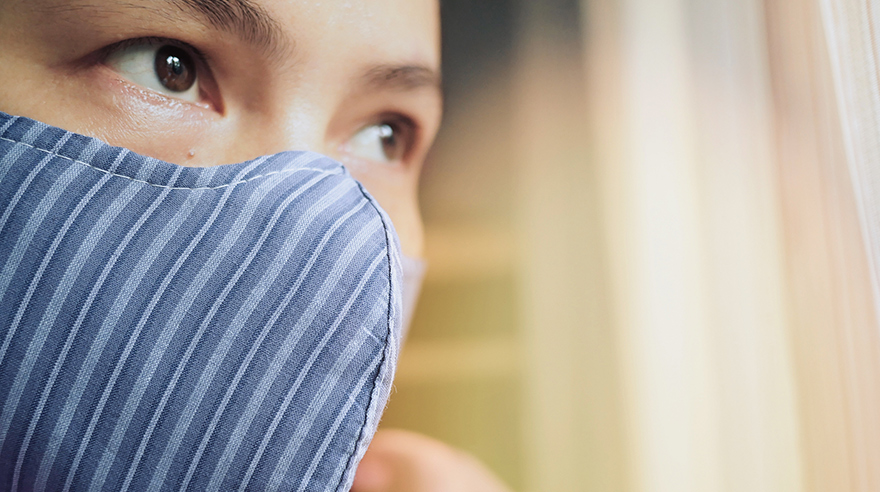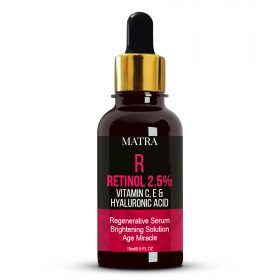Skincare
Is Maskne a real thing?
All you need to know about how to deal with it…
Wel! Before the chaotic entry of SARS-CoV-2, only love and Pollution existed in the air. After the mass outbreak of this deadly virus, masks became an inevitable part of our lives (unfortunately). But if you also develop breakouts because of wearing a mask, you’re not alone mate! This is a condition, known as “maskne” (mask acne). You might have noticed breakouts in the jaw, cheeks, nose, chin, and areas around the mouth.
With the massive rise in mask-wearing across all sectors of society, maskne or acne mechanica is becoming more and more well-known, despite having been around since the inception of clinical face masks.
Before the COVID-19 pandemic, athletes who wore helmets were most frequently afflicted with this condition.
What actually causes Maskne?
- As maskne can involve various skin conditions, the exact cause of symptoms may vary from person to person. In maximum cases and observations, it is the result of clogged pores. You already have so much on your skin. Be it oil, bacteria, or dead skin cells. But when you wear a mask, these substances can build up more and block your precious pores.
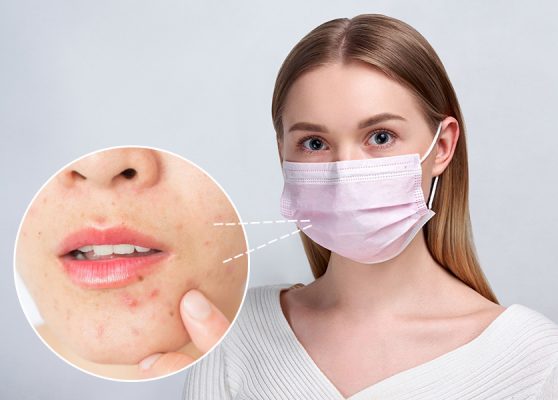
- A mask may not allow humidity caused by breathing and sweating to escape, which can highly increase the risk of acne.
- Another possible cause is friction. The material of a face covering can rub against your delicate skin. It can lead to chafing and irritation.
- In other cases, there are chances of individuals being sensitive or allergic to the material of their face covering. Some masks are pretreated with chemicals or feel rough on the skin. Similarly, wearing a mask that’s been washed in a scented detergent may irritate as well.
How to Avoid Maskne? Read On.
It’s necessary in today’s times to wear a face mask even if you have maskne. I mean who prefers to be bait for deadly viruses right? Keeping your mouth and nose covered is one of the best ways to protect yourself and those around you from COVID-19.
But to help prevent skin problems from developing under your mask, we share with you some tips that board-certified dermatologists recommend. Let’s take a closer look at each one…
- Wash your face regularly
During the lockdown, be meticulous about washing your face twice a day. It will reduce the chances of Maskne. It is generally recommended to do so: 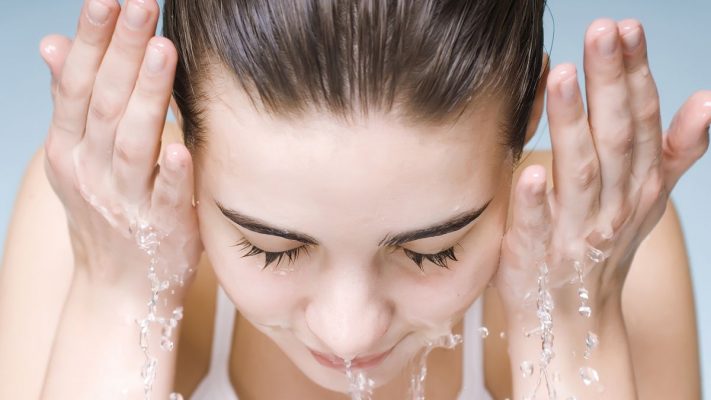
- once in the morning
- once at night, before your sweet sleep
- after sweating or wearing a mask for a long duration
Free Friendly Tip: When washing your face, use lukewarm water. Pat your skin dry with a clean towel. Don’t rub your skin as this may irritate. Stay away from any harsh products that will just cause more inflammation and acne.
- Break up with makeup (at least temporarily)
Just because we care for you enough like your best friends, we propose this break-up. If you put on makeup for a video call, make sure you take it off when you go out. This is the time to tone it down. Beauty products such as concealer, foundation, etc can clog your pores and prolong healing.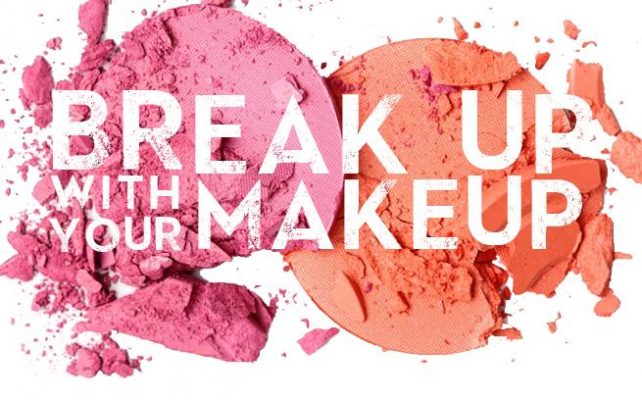
- Streamline your skincare routine
Many of us use too many beauty products anyway, so see this mask-wearing as a good excuse to adopt the most basic skincare routine: a gentle non-soap cleanser, an alcohol-free toner and a mild, fragrance-free moisturizer. Also, exfoliate as it helps in skin cell turnover.
- Wash, Cleanse, and Slay
I heard somewhere that there are no ugly women, only lazy ones. So don’t be one of them. Be active to take care of your face and skin. A gentle cleanser can help you say goodbye to excess oil, sweat, and bacteria. Avoid cleansers that contain alcohol or perfume. These ingredients can irritate and make it tedious for your symptoms to heal. If your maskne is more severe, try a medicated cleanser with benzoyl peroxide or salicylic acid. But hey only after your dermatologist approves of it!
After washing your face, you should follow it up with an alcohol-free toner and then apply a moisturizer to keep your skin hydrated. Try using a non-comedogenic product. Ok now don’t scratch your head. Its function is just to make sure that your pores are not blocked. If your maskne mostly involves irritation and raw skin, you may want to apply a mild cortisone cream to the area together with a moisturizer that contains ceramides. This can help protect your skin and relieve irritation and itching as well.
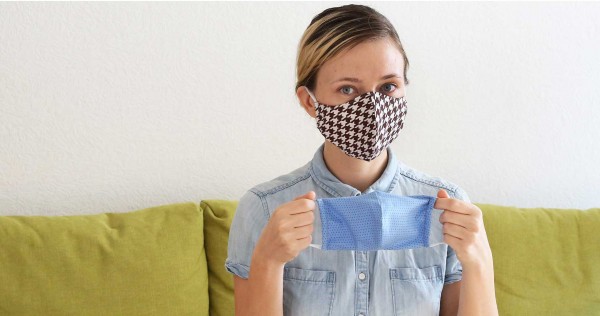
- Consider the type of mask you wear
I say this very often but be good to your skin. You’ll wear it every day for the rest of your life. You know something…beautiful skin requires commitment, not a miracle. So only you can decide how you want to balance the weight of the mask material with the level of protection it will give you.
Dermatologists suggest 100 percent cotton as a good compromise. It permits your delicate skin to breathe a bit. As the temperature rises and you sweat more. In this case, you have to keep the mask clean. Wash it frequently. You don’t want all of that oil and sweat and dirt to sit there and then you reapply it to your face constantly.
Treat It if You Get It
Enough about the problem. Now we do the real-talking. Prevention is always your best bet. You can try certain products to prevent this problem. Or some of them may even rapidly boost the healing process.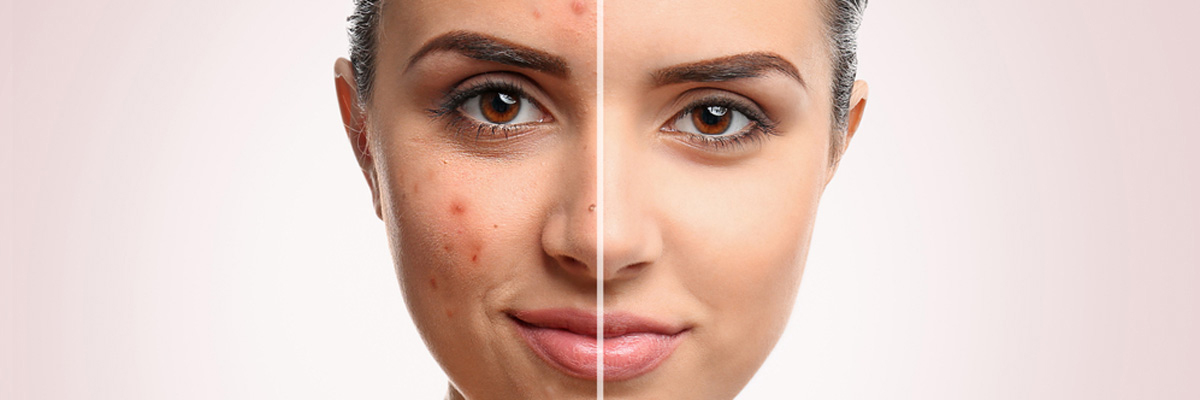
- Apply a topical antibiotic cream – It’s not uncommon for bacteria to build up under a face covering, which can lead to acne. To cure this, dermatologists often recommend applying a topical antibiotic cream on your skin before putting on a face mask.
- If you start developing maskne, first and foremost, be gentle. That means going easy on at-home spa days. Use a gentle chemical-free cleanser. And don’t forget to use a suitable hydrating moisturizer. It serves as a barrier between your skin and the mask.
- Using appropriate toner can help balance & replenish your skin.
- Dry skin and chapped lips are very common to face mask skin problems. Use medically recommended lip balms, if your skin near your lips is breaking out.

- Retinol is a well-known ingredient in anti-aging creams, serums and gels. What people are unaware of is that it can also be used to treat acne and acne-scarred skin. It works at both the surface and middle layers of the skin to unclog pores, smooth scars, and improve tone and texture.
- Aloe vera gel is another great home remedy for this problem. It has antibacterial properties that can reduce acne-causing bacteria. Cinnamon and honey have been found to have the same effect. By combining all three for an at-home spa treatment, you’ll be upping your chances at smooth skin that’s acne-free.
The Bottom Line
When most individuals wonder about skincare, they automatically think of the face. However, the skin is the largest organ of the body, so it’s best to nourish all of it. Although maskne can be frustrating, it’s necessary to keep wearing face masks during the COVID-19 pandemic. But if you don’t have to be in public, stay home and let your skin breathe.

